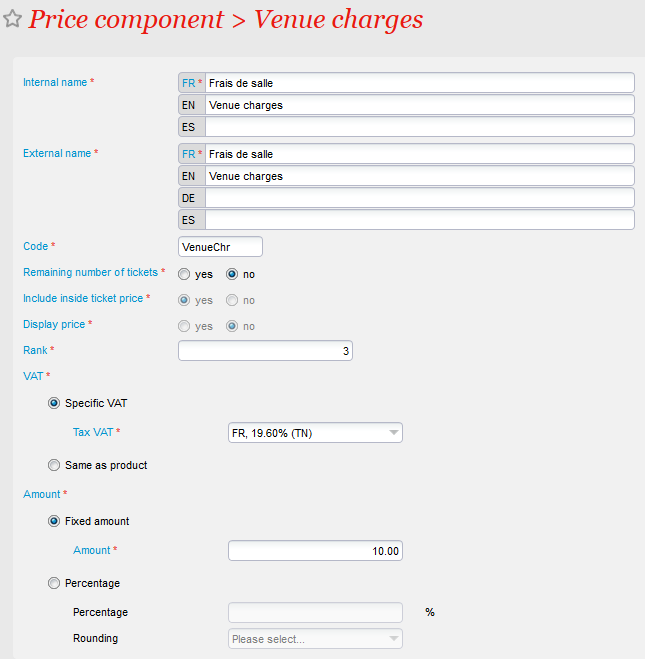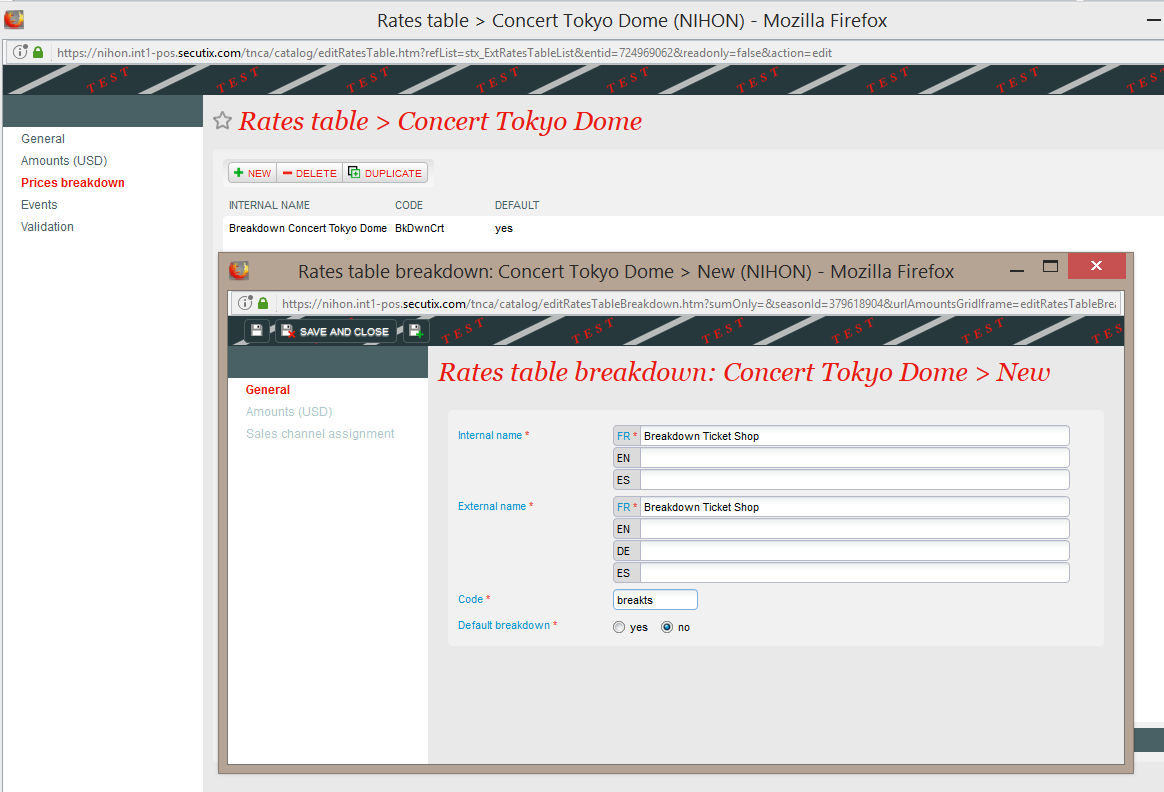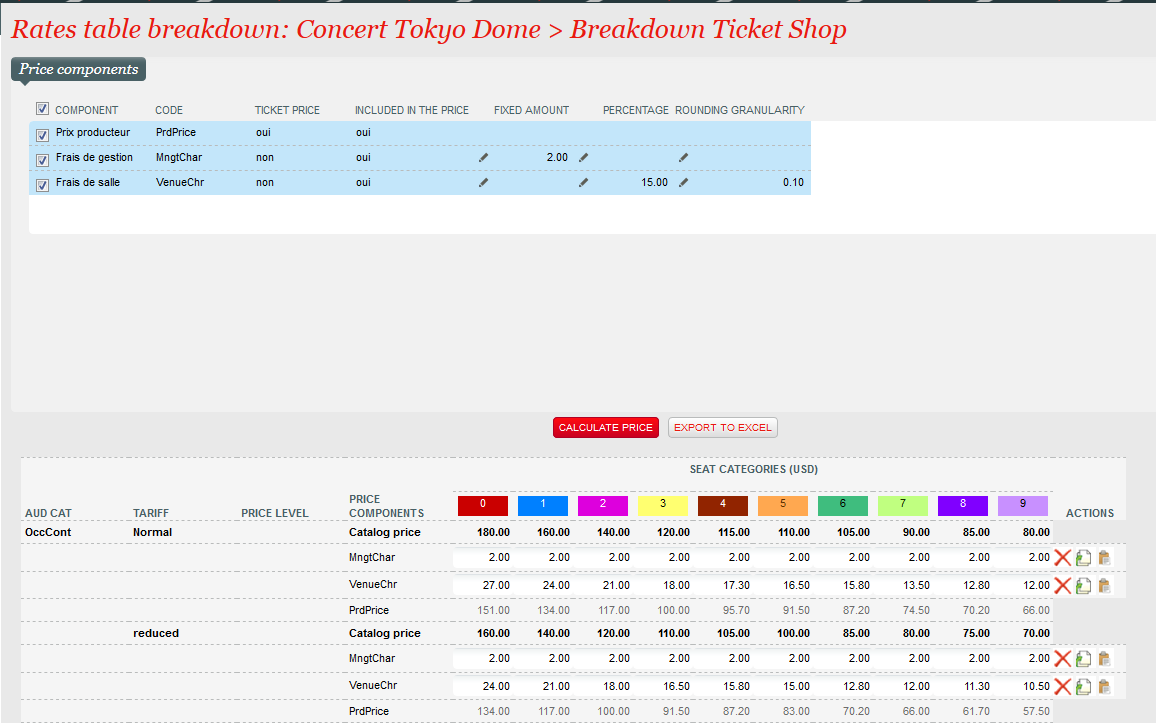Highlights
SecuTix has started a major project in Whymper V2. This project will last during several releases and will continue in 2019. The purpose is to bring major improvements in the definition of the prices and price breakdowns, in particular:
- Configure prices in an easier way.
- The price breakdown will be more flexible and available for all kinds of prices.
- Future pricing features will be available for all kinds of prices (as long as it makes sense from a business point of view) thanks to a uniform way of storing prices within SecuTix.
Whymper V2 features
Developments in Whymper V2 concern the pricing of events and related product families (i.e. competitions and "old" visits, not visit passes) as well as events defined inside an advantage, a calculated price season ticket or a package.
Pricing
Get rid of the rate type when defining the prices of an event. A rate table is now directly assigned to a performance, and not indirectly through the rate type as it was the case in the past. Of course, several performances may share the same rate table, no matter if they belong to the same event or not. It's still possible to define exception prices for a given performance. The concept of rate type isn't used anymore for the price definition but may still be used for other needs, for example to define the performances on sale within a package.
When the operator creates new performances, he may (but doesn't have to) select a rate table to be assigned to the new performances. He can assign (or reassign) a rate table later on from the performances menu.
Gain flexibility while defining the price of a (set of) performances within an advantage or a package. This price is now defined by a fully separated grid. In other words, the rate table defining the price of a product within an advantage or a package isn't a sub-grid anymore of the rate table defining the price of the same product sold alone. This change provides you major benefits:
- You can easily define the same prices for several events while defining different prices for advantages or packages using these events.
- You can easily define different prices for several events while defining the same price for advantages or packages using these events.
Concretely, when the operator defines the prices of performances within an advantage or package, he has the choice between:
- Define new prices for these performances within the advantage or package. These prices will be stored in a rate table that may be reused later as any other rate table.
- Reuse an existing rate table.
Price breakdown
Take profit of numerous improvements
The price breakdown will receive major improvements in the next releases:
- For each rate table, define freely if you want to create price breakdown(s) or not.
- Minimise the amount of work needed to set up a price breakdown while keeping maximum flexibility:
- Define a default amount computation rule for each price component.
- While working on a specific price breakdown, reuse the default computation rules defined before or override them.
- Let SecuTix compute all the amounts for you according to previous computation rules.
- Modify single amounts in the price breakdown if needed.
- Use the price breakdown for almost every kinds of prices (all product families for which a price is defined in the catalog, products within advantages or packages)
Price breakdown in practice
Whymper V2 will provide the new price breakdown for events as well as for events defined inside an advantage, a calculated price season ticket or a package.
You can define as many price components as you want:
A rate table may have zero, one or more price breakdowns. The first price breakdown created is the default one. Additional price breakdowns, valid for specific sales channels may be created:
Select the price components you want to use in your breakdown and, if necessary, override the default computation rule:
Click on the CALCULATE PRICE button:
If needed, you can handle exceptions by modifying some amounts in the detailed price breakdown above.
More to come
Price refactoring
- Get rid of the rate type and define the prices of your exhibitions only one. The pricing of the timeslot and visit passes won't need rate types anymore. As for the events, the rate type may still be used in order to select a subset of timeslots, for example the list of timeslots on sale for a given pass within a package.. The pricing of the timeslot and visit passes will be based on reusable price grids. For example, if several exhibition have the same price, you need to define the prices only once.
- Define simply the price of your advantage or package with a discount. Instead of setting up a complete price grid, define simply that the advantage (or the purchase within a given package) provides a rebate of 15%.
Price breakdown
- Use the price breakdown for almost every kinds of prices (all product families for which a price is defined in the catalog, products within advantages or packages)
- Use price components to define external charges that come in addition to the catalog price. Whymper V2 will provide price components that are included in the catalog price and which amount isn't displayed to the end customer. Later releases will provide components which amount comes in addition to the catalog price. The operator may decide which components are showed to the end customer. These components, called outside price components, will replace the simple charges. Unlike the simple charges, it will be possible to define several outside price components for the same product.



